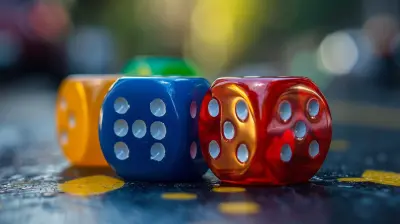The Evolution of Leveling Systems in Games
16 August 2025
Let’s be honest—there’s a little thrill every time we hear that level up chime in a game. Whether it’s a glowy animation, a character scream, or the soft ding of progression, leveling invokes a sense of growth that’s hard to beat. But have you ever stopped and wondered how leveling systems in games even started? Or how much they've changed over the years?
It’s been one heck of a ride from the pixelated days of early RPGs to the vast open-world progression systems we see today. So, grab your favorite energy drink and settle in, because we’re about to break down the wild and fascinating journey of leveling systems in video games.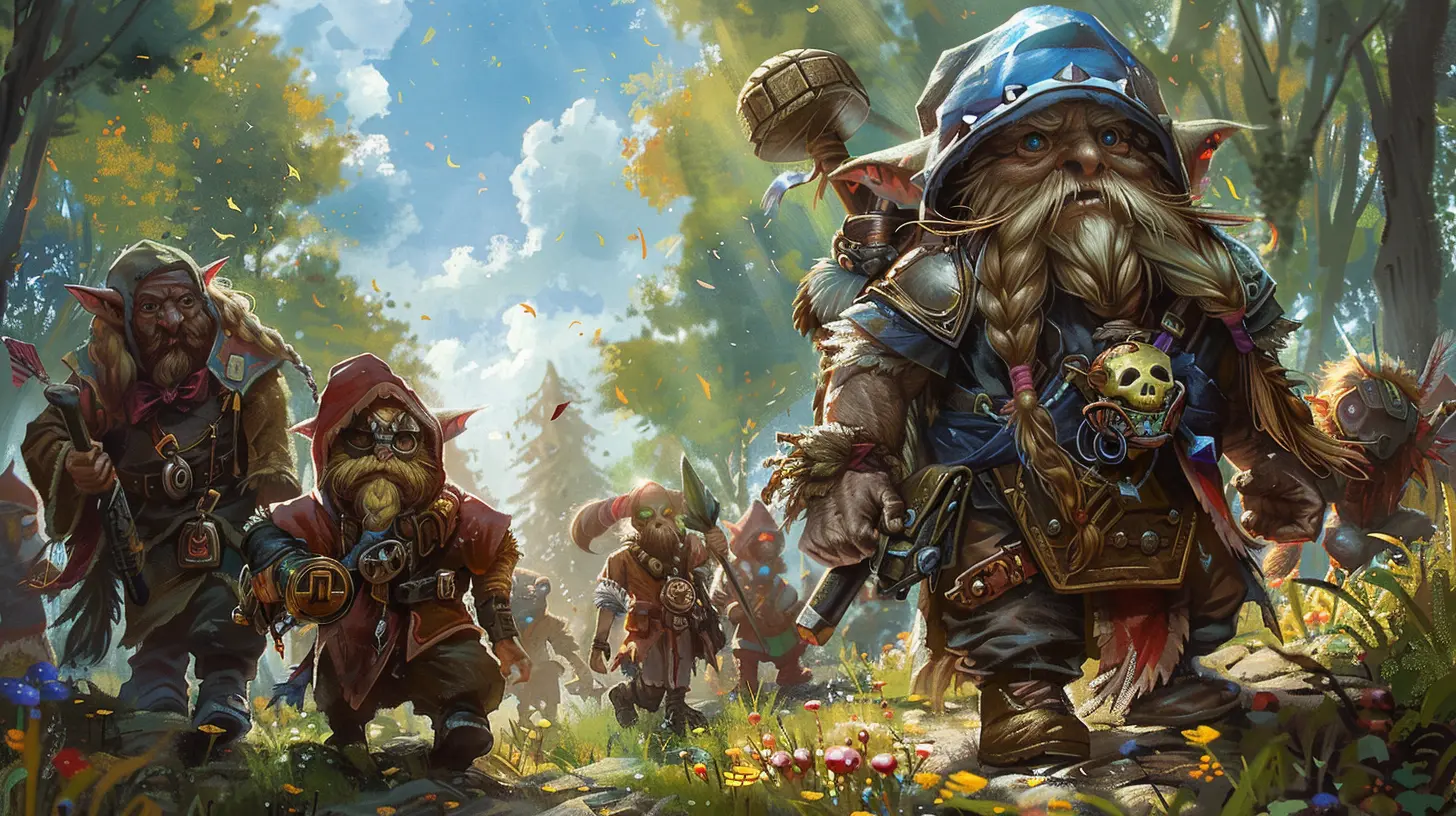
What Even Is a Leveling System?
If you’ve played any RPG, shooter, mobile idle game, or even a life simulator, chances are you've encountered some form of leveling. At its core, a leveling system is all about progression. Think of it as your digital resume where your experience points (XP) are your work history. The more XP you earn, the better your character (or your castle, team, city—whatever applies) becomes.But leveling isn’t just about numbers—it represents growth, effort, time investment, and reward. It’s the game’s way of saying, “Hey, you’re doing great. Keep going.”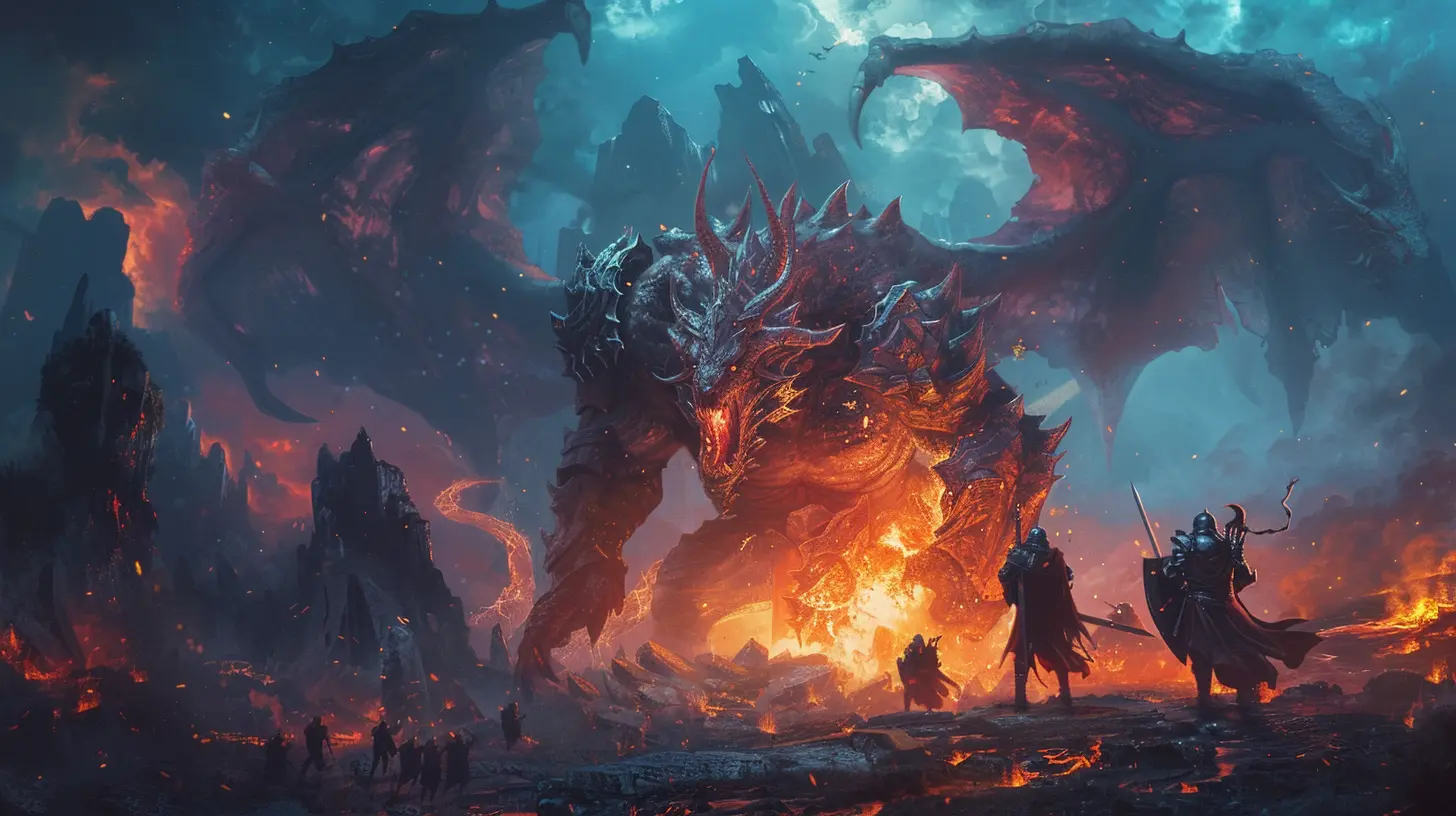
Level 1: The Early Days – Pen and Paper Inspiration
Before gaming even made it onto screens, tabletop RPGs like Dungeons & Dragons paved the way. These games introduced class-based progression and experience points way back in the 1970s. When developers started making digital games, they naturally borrowed this tried-and-true system.Take the original Final Fantasy or Dragon Quest for example. You killed a slime, earned a couple XP, and eventually dinged level 2. That tiny number going up was enough to hook players for hours. It was simple, rewarding, and laid the foundation for what was to come.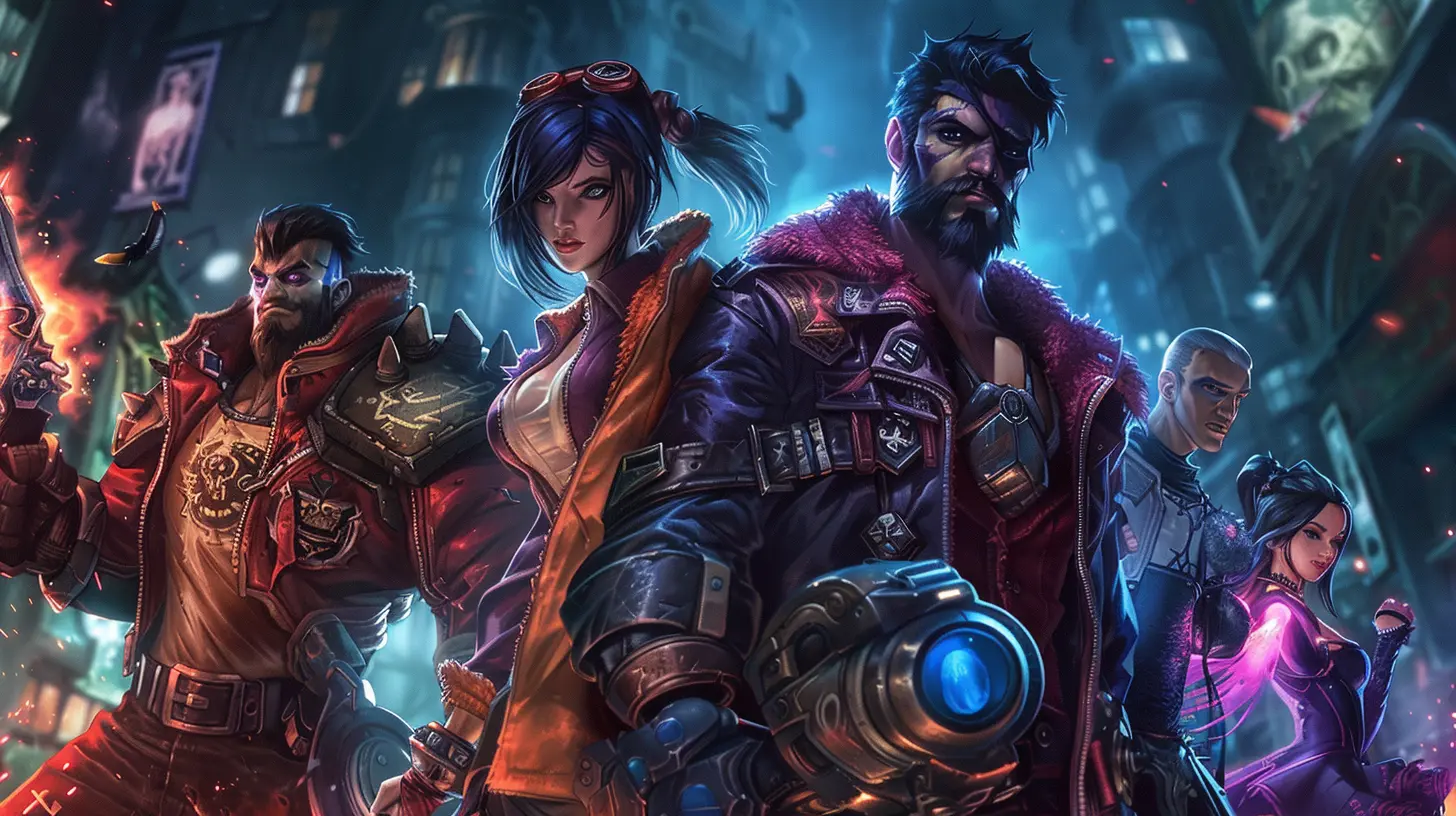
Level 2: Grinding Through the 8-Bit and 16-Bit Eras
As consoles like the NES and SNES powered up, so did leveling systems. The 80s and 90s introduced a grind-heavy design approach. Games like Chrono Trigger, EarthBound, and Secret of Mana had players fight wave after wave of enemies to gain new abilities.But here's the kicker—back then, leveling was tough. You had to put in real work. No shortcuts. No XP boosts. The systems were punishing but oh-so-satisfying when you finally got strong enough to take down that impossible boss.
Sure, these games were “grindy,” but that grind was part of their charm. It made victory taste sweeter.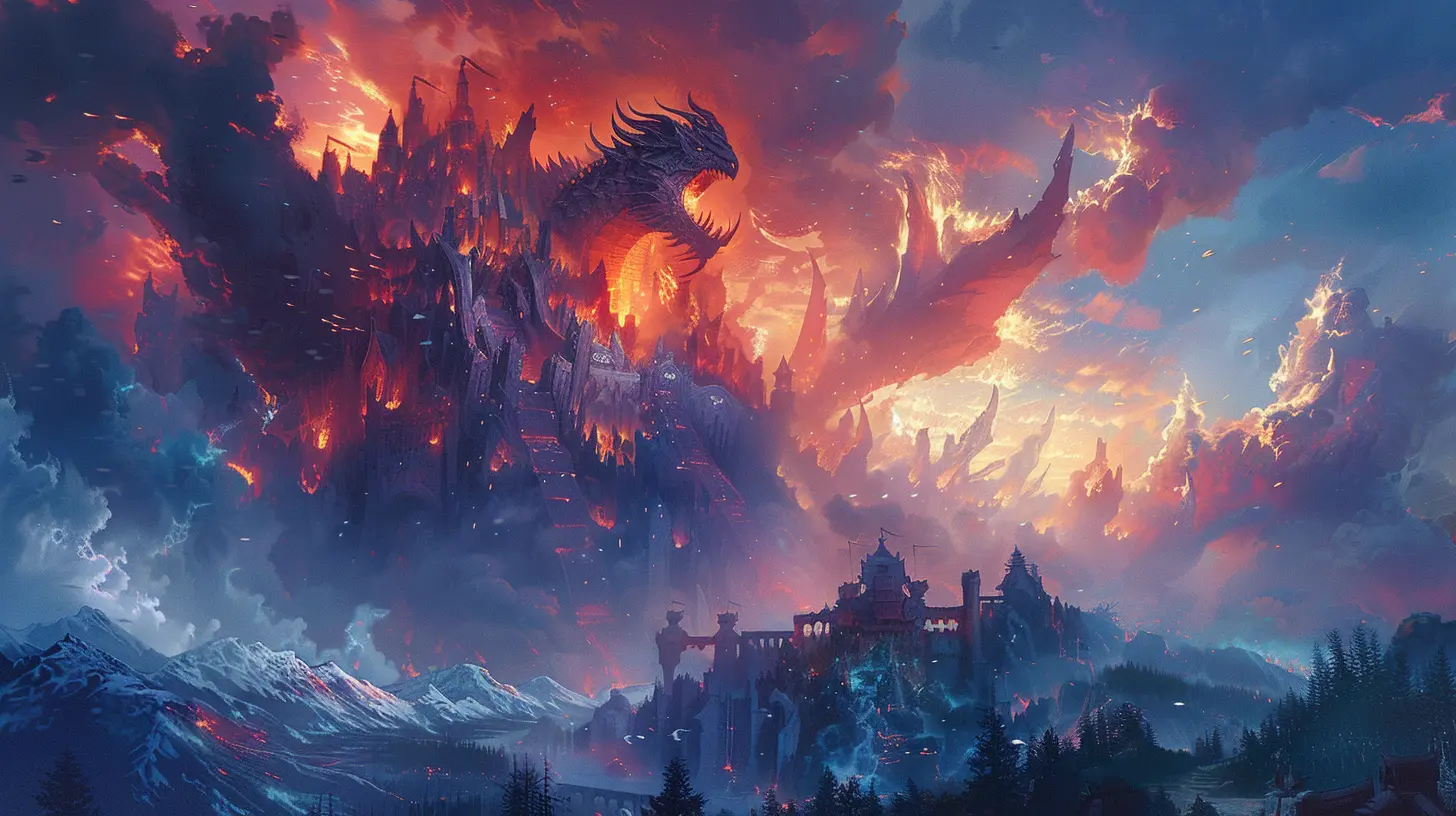
Level 3: The MMORPG Boom – Community and Personal Growth
Now, let’s fast-forward to the early 2000s when MMORPGs (massively multiplayer online role-playing games) like World of Warcraft, Runescape, and EverQuest took leveling to a whole new level—pun intended.Leveling became more than just gaining stats; it became a social experience. Players spent countless hours farming monsters, chasing quests, and crafting items—not just for XP, but to show off to friends and climb leaderboards.
Suddenly, leveling wasn’t just about getting stronger. It was about identity. You weren’t just a level 45 Paladin—you were “That guy with the glowing armor who helped me with that dragon.”
These games also introduced skill trees and specialization paths that helped personalize progression. Choices mattered. You could shape your character in unique ways. This was a big leap from the linear “level up = more power” days.
Level 4: The Rise of Casual Systems – XP for Everyone
Not everyone wanted to spend 300 hours grinding mobs in a forest, though. As gaming spread to more audiences, developers started adjusting leveling systems to be more accessible.Games started handing out XP like Halloween candy. Completing quests, crafting, exploring—heck, even talking to NPCs could earn you a little boost.
Look at The Elder Scrolls IV: Oblivion or Skyrim—you gained skill XP by simply using your abilities. Want to be a better mage? Cast spells. Prefer sneaking? Crouch everywhere like your life depends on it.
It was intuitive and natural. Leveling happened as you played, not as you farmed. This made RPGs more approachable and enjoyable for casual players while still offering depth for the hardcore crowd.
Level 5: Shooters and MOBAs Join the XP Party
Leveling systems aren’t just for RPGs anymore. Games like Call of Duty, Overwatch, and League of Legends added leveling mechanics to enhance replayability and reward systems.In Call of Duty, you level up to unlock new guns, perks, and attachments. In League, every match starts with your champion at level 1, and you race to level 18 by farming minions and winning fights.
It’s a clever twist—leveling becomes a temporary in-game objective that resets each match. It creates tension and progression within every single game session instead of across a long campaign.
These systems also introduced prestige ranks, season passes, and reward tracks. Levelling wasn’t just a game mechanic anymore—it was a reason to keep logging in.
Level 6: Mobile Games and the Birth of the XP Economy
Enter mobile gaming, where leveling systems took on yet another role: monetization.From Clash of Clans to AFK Arena, mobile titles use leveling not just to enhance gameplay but to drive microtransactions. Want to improve faster? Pay a little. Want to skip that 10-hour grind? Here’s a shiny XP booster.
These games often blend leveling with timers, loot drops, and randomized rewards. While they can sometimes feel like slot machines, there’s no denying they’ve redefined how leveling works in the modern age.
Still, despite criticism, these systems offer short gameplay bursts with very real progression—perfect for busy players.
Level 7: Open Worlds and Player-Driven Growth
Let’s not forget modern giants like The Witcher 3, Horizon Zero Dawn, and Assassin’s Creed Valhalla, which offer enormous open worlds filled with opportunities to level up.But here's what's cool: these games often let you shape your progression path. Want to focus on archery? Improve that. Prefer stealth? Go that route. The systems are fluid, branching, and reactive.
The focus moves away from “hit level 50” and more toward “build the character you want to play.” It’s empowering and makes each player’s journey feel unique.
Some games even ditch traditional XP altogether. Think Zelda: Breath of the Wild. There's no leveling number. Your growth is tied to exploration, gear, and skill. It's a bold move, but it works.
Level 8: Dynamic and Adaptive Leveling
With the power of AI and smarter game design, some titles now feature adaptive leveling. Enemies scale with your level. This keeps things challenging and prevents players from steamrolling through the game after a few upgrades.The Division and Dark Souls use scaling mechanics and difficulty curves smartly to keep engagement high. No matter how strong you get, the world still pushes back just enough to keep things interesting.
It’s a delicate balance—give the player power, but never make the game feel too easy.
Level 9: Gamification Beyond Games
Funny thing? Leveling systems have slipped outside traditional gaming. Fitness apps, language learning platforms, and productivity tools use XP and "level ups" to keep users engaged.Why? Because it works. That dopamine hit when your profile hits level 10 is satisfying, gaming or not. It turns progress into a game, and who doesn't love being rewarded?
This shows just how influential and versatile leveling systems really are.
So… What’s Next for Leveling Systems?
That’s the million XP question. With the rise of AI, procedural design, and virtual reality, the future might hold even deeper and more personalized leveling systems.Imagine an RPG where your choices dynamically shape your level cap. Or a shooter where enemies adapt not just to your level, but to your unique playstyle. What if leveling wasn’t just numbers—but emotional growth, character relationships, and moral decisions?
The possibilities are endless—and honestly, that’s pretty exciting.
Final Thoughts – Leveling Up IRL?
Leveling systems tap into something deep inside us—the desire to improve, to achieve, to progress. Whether it’s slaying a boss, upgrading your weapon, or just finally crafting that ridiculous armor set, it all matters.Sure, systems have gotten more complex over time, but the heart hasn’t changed. It’s still about looking back and saying, “Wow—I’ve come a long way.”
So next time you level up, don’t just shrug and move on. Take a second and appreciate that digital growth. After all, isn’t that what gaming is all about?
all images in this post were generated using AI tools
Category:
Leveling UpAuthor:

Lucy Ross
Discussion
rate this article
2 comments
Gavin Wolf
Great read! It's fascinating to see how leveling systems have transformed gaming experiences over the years. Keep it up!
February 7, 2026 at 5:27 AM
Lauren McPherson
From grinding in the pixel mines to leveling up in style, who knew virtual XP would give us more existential crises than actual life?
August 24, 2025 at 2:49 PM

Lucy Ross
It's true! The journey from grinding for XP to navigating complex leveling systems reflects our own life challenges, blurring the lines between gaming and reality.

